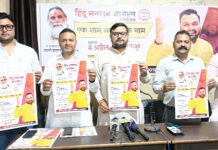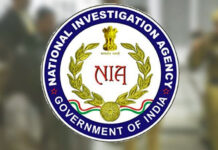WhatsApp has moved the Delhi High Court against India’s new and stricter IT Rules that require instant messaging platforms to aid in identifying the ‘originator’ of messages.
The petition challenging the constitutional validity of the rules, which come into force on May 26, was filed on May 25.
“Requiring messaging apps to ‘trace’ chats is the equivalent of asking us to keep a fingerprint of every single message sent on WhatsApp, which would break end-to-end encryption and fundamentally undermines people’s right to privacy,” a WhatsApp spokesperson said.
The spokesperson added that the messaging platform had consistently joined civil society and experts around the world in opposing requirements that would violate the privacy of its users.
“In the meantime, we will also continue to engage with the Government of India on practical solutions aimed at keeping people safe, including responding to valid legal requests for the information available to us,” the spokesperson said.
‘The Information Technology (Guidelines for Intermediaries and Digital Media Ethics Code) Rules, 2021’ were notified on February 25, giving social media platforms three months to comply. The rules state that intermediary providing messaging services will “enable the identification of the first originator of the information on its computer resource” following a judicial order passed by a court of competent jurisdiction or an order passed under section 69 by the Competent Authority as per the Information Technology Act.
The rules state that an order will be passed only for the purposes of prevention, detection, investigation, prosecution or punishment of an offence related to the sovereignty and integrity of India, the security of the State, friendly relations with foreign States or public order or of incitement to an offence relating to the above or in relation with rape, sexually explicit material or child sexual abuse material, punishable with imprisonment for a term of not less than five years.
In cases where other less intrusive means are effective in identifying the originator of the information, no order will be passed.
“…in complying with an order for identification of the first originator, no significant social media intermediary shall be required to disclose the contents of any electronic message, any other information related to the first originator, or any information related to its other users,” the rules state.
“WhatsApp has done what every company must do if they care about end-to-end encryption and privacy. The IT rules notified by the government are unconstitutional. In the garb of addressing misinformation and regulating technology companies, GoI has been exceeding the powers granted through subordinate legislation and using it for political purposes as is evident from the recent Twitter fracas. This is exactly the reason why the Free and Open Source Software community challenged these rules in the Kerala High Court,” Mishi Choudhary, founder, Software Freedom Law Centre, India, said.
The Union government and WhatsApp have been at loggerheads over tracing the origin of fake/unlawful messages for over two years now. The messaging platform has consistently refused to comply with the government’s demand, saying that the move will undermine the privacy of WhatsApp users.




























